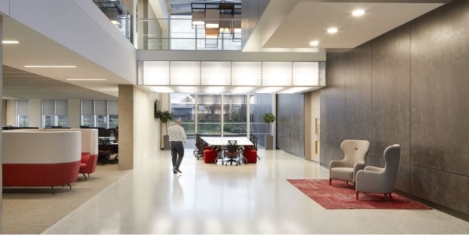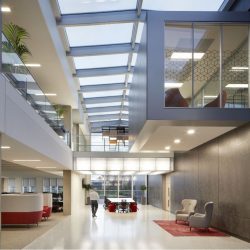To provide the best experiences, we use technologies like cookies to store and/or access device information. Consenting to these technologies will allow us to process data such as browsing behaviour or unique IDs on this site. Not consenting or withdrawing consent, may adversely affect certain features and functions.
The technical storage or access is strictly necessary for the legitimate purpose of enabling the use of a specific service explicitly requested by the subscriber or user, or for the sole purpose of carrying out the transmission of a communication over an electronic communications network.
The technical storage or access is necessary for the legitimate purpose of storing preferences that are not requested by the subscriber or user.
The technical storage or access that is used exclusively for statistical purposes.
The technical storage or access that is used exclusively for anonymous statistical purposes. Without a subpoena, voluntary compliance on the part of your Internet Service Provider, or additional records from a third party, information stored or retrieved for this purpose alone cannot usually be used to identify you.
The technical storage or access is required to create user profiles to send advertising, or to track the user on a website or across several websites for similar marketing purposes.
 Modern corporations should work in the best interests of society and people rather than focusing primarily on making money for shareholders as they may have in the past, according to an influential group of chief executives. The body Business Roundtable, which represents the heads of some of America’s largest companies, including Apple, Amazon and Exxon Mobil, has issued a statement of its updated corporate governance principles. (more…)
Modern corporations should work in the best interests of society and people rather than focusing primarily on making money for shareholders as they may have in the past, according to an influential group of chief executives. The body Business Roundtable, which represents the heads of some of America’s largest companies, including Apple, Amazon and Exxon Mobil, has issued a statement of its updated corporate governance principles. (more…)








 Emotional intelligence or emotional quotient (EQ) is an increasingly popular buzz phrase in business and understanding its impact in the workplace is becoming crucial to employers in getting the most out of their staff. A new survey from
Emotional intelligence or emotional quotient (EQ) is an increasingly popular buzz phrase in business and understanding its impact in the workplace is becoming crucial to employers in getting the most out of their staff. A new survey from 










 Worker performance could increase by 20 percent if the fresh air supply in offices and meeting rooms is improved, finds a new report developed by Sharp and workplace psychologist Dr Nigel Oseland.
Worker performance could increase by 20 percent if the fresh air supply in offices and meeting rooms is improved, finds a new report developed by Sharp and workplace psychologist Dr Nigel Oseland. 
 An emerging super-group of employees and consumers in the UK is adding intense pressure to already challenged C-suite leaders who are navigating tough economic, technological and geo-political environments – further threatening company growth, a new Accenture (NYSE: ACN) study finds. With nearly three-quarters (73 percent) of these powerful stakeholders believing they have the potential to destroy company value in the long term, the C-suite understands the need to respond.
An emerging super-group of employees and consumers in the UK is adding intense pressure to already challenged C-suite leaders who are navigating tough economic, technological and geo-political environments – further threatening company growth, a new Accenture (NYSE: ACN) study finds. With nearly three-quarters (73 percent) of these powerful stakeholders believing they have the potential to destroy company value in the long term, the C-suite understands the need to respond. 










July 2, 2019
A Turing Test for the workplace 0
by Mark Eltringham • Comment, Facilities management, Technology, Workplace, Workplace design